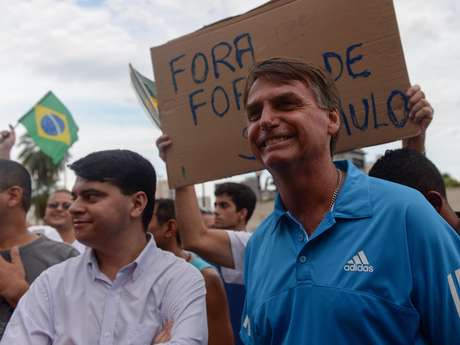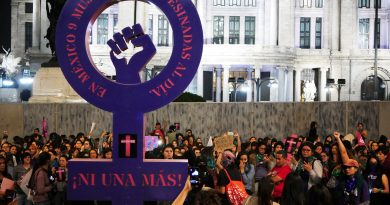Brazilian Elections Head to Runoff as Right and Left Face Off
Anthony Samaniego
Staff Writer
On October 2, Brazil held its presidential election and statistics show that it is headed for a run-off vote, reports Reuters. Election authorities stated on the day of the election that current right-wing president Jair Bolsonaro was surprisingly outperforming his rival former leftist president Luiz Inacio Lula Da Silva who was initially leading the polls in the days prior to the election. After the first round, 99.7 percent of electronic votes were counted in where Lula was ahead with 48.4 percent of votes and Jair Bolsonaro received 43.3 percent of the votes. Neither candidate got majority support, thus initiating a runoff election where the top two candidates will face off later this month.
There are several reasons why the U.S. government has been paying attention to the election in Brazil including trade, democracy, right-wing populism, and climate change, BBC News reports. Both the U.S. and Brazil endured some of the highest death tolls from COVID-19 and face inflation levels above 8 percent. International interest in Brazil’s presidential election is high and many U.S. officials have been talking publicly and privately about the stakes for months before the vote.
The elections in Brazil are one of the most closely watched in Latin America, as two polarizing political ideologies face off for the presidency in the largest economy in Latin America and the fourth-largest democracy in the world, according to NPR. Right-wing candidate Jair Bolsonaro who many consider a “brash” nationalist is widely criticized for escalating the destruction of the Amazon Rainforest, and not responding seriously to COVID-19. He has also attacked Brazil’s electoral system accusing it of being fraudulent leading up to the election.
The other leading candidate is former leftist president Lula Inacio Da Silva who is a 76-year-old former metal worker and union leader who governed Brazil from 2003 to 2010, NPR reports. During Lula’s presidency, social welfare programs were expanded helping millions rise out of poverty, occurring at a time of economic growth and a boom in commodity prices. In 2017 Lula was caught in a corruption scandal–one of the biggest in Brazil’s history—and imprisoned in 2018. Lula maintained his innocence while in prison and after 580 days in prison he was released in 2019 when the Supreme Court declared his conviction invalid.
Under Jair Bolsonaro’s presidency in Brazil, the country had the world’s highest Coronavirus deaths per capita due to his rejection of lockdowns and mask mandates. Though Bolsonaro assured the United Nations that Brazil was in full economic recovery, the country’s rising inflation has been hurting Brazil’s poor. Bolsonaro insists that his campaign is about defending family values which helps him gain support among the country’s conservative evangelical population. Under executive order, Bolsonaro also loosened gun laws and severely eliminated environmental protection for the Amazon.
The center-right candidate Simone Tebet came in third place during the first round, receiving 4 percent of the votes, she called on the five million people who voted for her to back Lula during the second round of votes according to Deutsche Welle. Though Tebet disagrees with Lula on many issues, she recognizes his commitment to democracy and the constitution which she sees lacking with the current president, says Deutsche Welle. Fernando Henrique Cardoso, another former president who is most respected amongst business circles also declared he will vote for Lula in the second round. Cardoso states that Lula’s history of struggling for democracy and social inclusion is the reason behind his support for Lula. Cardoso posted a picture of him and Lula spreading pro-democracy pamphlets during the period of Brazil’s military dictatorship, which lasted from 1964 to 1985.
Jair Bolsonaro’s polarizing rhetoric and penchant for attacking Brazil’s electoral system as fraudulent have earned him the nickname “Trump of the Tropics” while Lula on the other hand is remembered for his legacy as president when policies that significantly reduced poverty and inequality were implemented, according to The Brookings Institution. Though Lula remains the most popular politician amongst Brazil’s rural, working, and some of the middle-class population he is hated amongst Brazil’s right-wing due to his corruption charges.
Bolsonaro and Lula both offer dramatically different visions for Brazil’s future with opposing ideas on topics ranging from foreign policy to the environment. Bolsonaro has a military background, serving as a captain during the military dictatorship which governed the country for more than 20 years, Brookings says. Bolsonaro has repeatedly expressed contempt for the democratic process. Lula’s potential victory has been described amongst his supporters as an opportunity to “rebuild Brazil’s battered democracy” Brookings reports.


